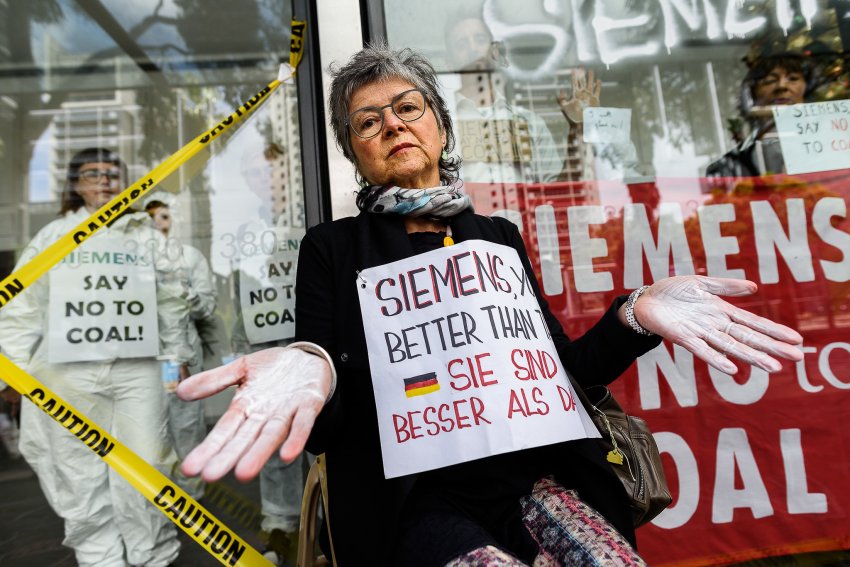
Siemens CEO Joe Kaeser issued a statement on January 12 confirming the multinational conglomerate will fulfil its contract with Indian mining giant Adani to undertake signalling work for the rail link project to its proposed mega coal mine in Central Queensland.
Siemens faced intense opposition after it signed the contract on December 10, including protests and mobile billboards outside its home office in Munich displaying messages about the role coal mining is playing in fuelling climate-induced bushfires in Australia.
Swedish climate activist Greta Thunberg joined thousands more in publicly calling on the company to drop the contract and #StopAdani campaigners in Australia targeted company offices around the country.
Kaeser initially said he was unaware of the contract and promised to review Siemens’ involvement in the project. However, the company ultimately concluded: “There is practically no legally and economically responsible way to unwind the contract without neglecting fiduciary duties.”
Siemens prides itself on its “green” image, having being the first global industrial company of significant size to commit to becoming carbon neutral by 2030. But its climate policy is rendered meaningless by getting into bed with Adani.
In response to the decision, the #StopAdani campaign has pledged to ratchet up pressure on Siemens in the lead up to the company’s annual general meeting on February 5.
Market Forces executive director Julien Vincent said: “If Adani’s coal mine was a terrible idea in 2019, in 2020 it represents a downright insult to all those who have had their lives turned upside down as bushfires maraud across Australia this summer.
“The unfolding bushfire crisis in Australia, which has already killed over 20 people and one billion native animals, is just a taste of what is to come if fossil fuel projects like Adani’s go ahead.
“If Siemens’ board thinks this is the end of the conversation, they’re kidding themselves. Siemens will face huge public opposition at its AGM … and will have to explain to its shareholders why becoming part of the most reputationally risky projects in the world is in the company’s best interests.”
Ingo Speich, head of sustainability and corporate governance at Deka Investment, a Siemens shareholder, confirmed to the Financial Times that the contract would be raised at the AGM. “It’s important to implement sustainability criteria systematically into decision making to mitigate reputation and litigation risk,” he said.
Australasian Centre for Corporate Responsibility director of climate and environment Dan Gocher told FT the mine “has the potential to do enormous damage, not just from the emissions embedded in the coal from that mine, but as the catalyst for five-six additional new coal mines in the same basin”.